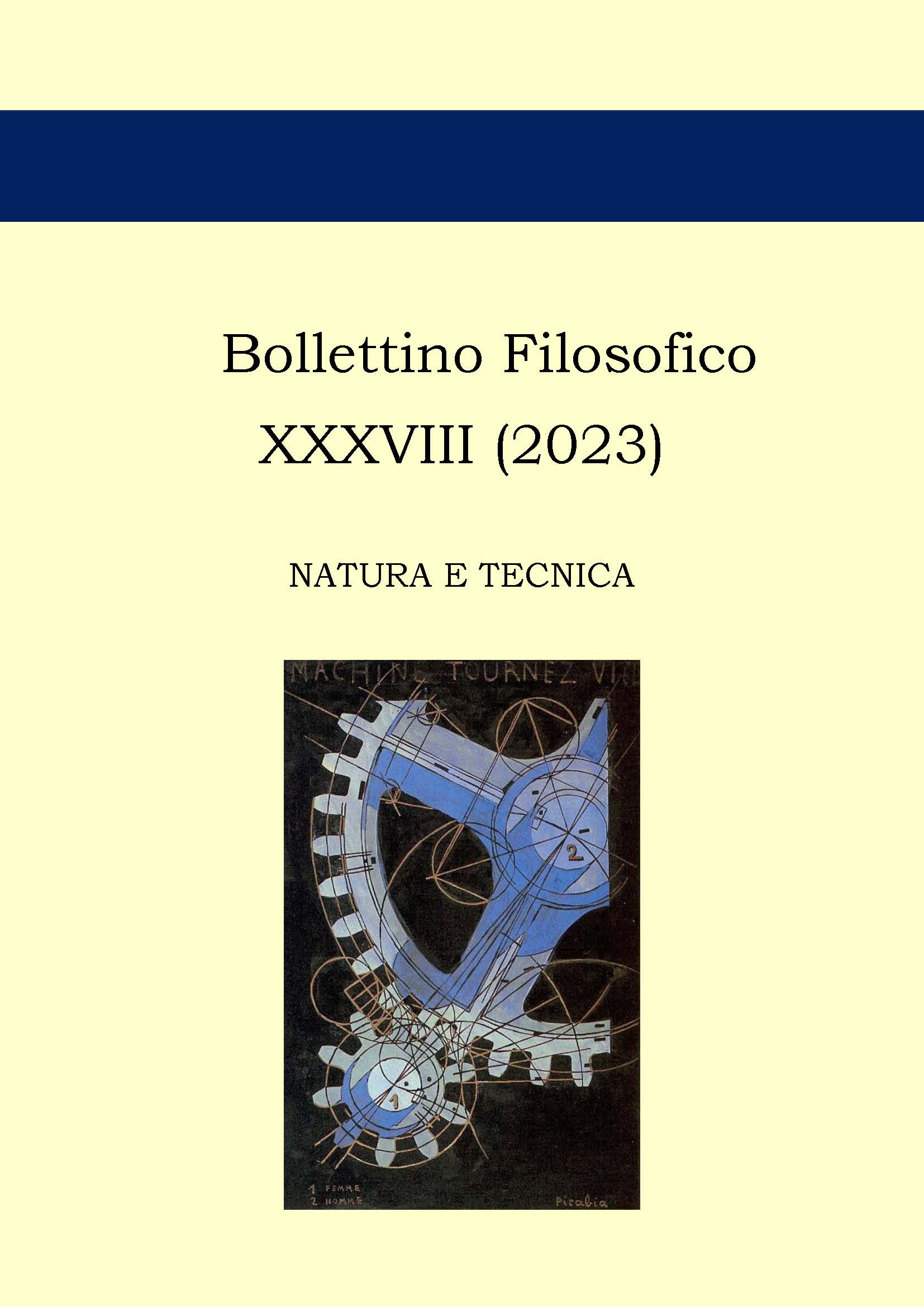The Mind between Technology and Nature
Abstract
In the first section, the article attempts to reconfigure the relationship between mind and technology beyond the classical schema according to which technology is a product of mind. Relying on Richard Gregory’s idea of Potential Intelligence and its developments in the theory of the extended mind, it is argued that the relationship between mind and technology is constitutive and original, so that in some sense mind is a technological product. The second section outlines – with reference to Mark Rowlands – a reading of the extended mind that does not identify it with the mere “extension” of its cognitive states to specific elements of the external world, but with the constitutive character of processes of instrumental relation to the world that could be linked to those theorised by Heidegger: disclosing and revealing activities that constitute at the same time the origin of significance. The third section emphasises the weight of technology in ‘shaping’ the mind and redefining our purposes, considering the idea of several authors (from Cassirer to Gehlen, from Ellul to Mumford) of a sort of “autonomy” of technology.
Keywords: Extended Mind, Mind, Potential Intelligence, Significance, Technology
Downloads
The author retains the copyright of his work whilst granting anyone the possibility “to reproduce, distribute, publicly communicate, publicly exhibit, display, perform and recite the work”, provided that the author and the title of the journal are cited correctly. When submitting the text for publication the author is furthermore required to declare that the contents and the structure of the work are original and that it does not by any means compromise the rights of third parties nor the obligations connected to the safeguard of the moral and economic rights of other authors or other right holders, both for texts, images, photographs, tables, as well as for other parts which compose the contribution. The author furthermore declares that he/she is conscious of the sanctions prescribed by the penal code and by the Italian Criminal and Special Laws for false documents and the use false documents, and that therefore Bollettino Filosofico is not liable to responsibilities of any nature, civil, administrative or penal, and that the author agrees to indemnify and hold Bollettino Filosofico harmless from all requests and claims by third parties.
